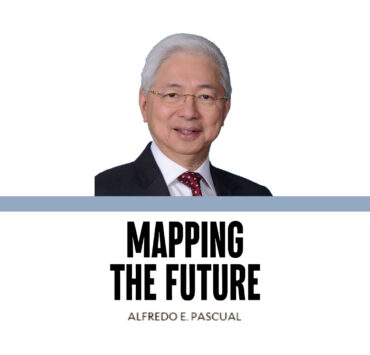No more closed doors in the budget process

The Department of Budget and Management has formally submitted the 2026 National Expenditure Program to Congress, beginning the next cycle of the appropriations process. Amid the controversy over secret insertions and realignment of allocations, the question persists: Does the current process of reviewing and approving the budget genuinely serve the public interest?
One notable reform effort to confront this issue is Joint Senate Resolution No. 1, introduced by Senate Minority Leader Tito Sotto. It marked a decisive move toward dismantling the secrecy that has long characterized budget negotiations in Congress. The resolution mandates public access to all bicameral conference committee deliberations, whether conducted in person or livestreamed, and has earned the support of Senators Risa Hontiveros, Ping Lacson, Loren Legarda, Migz Zubiri, Kiko Pangilinan, and Bam Aquino.
Following Sotto’s lead, the Senate recently adopted Senate Concurrent Resolution No. 4, authored by Sen. Sherwin Gatchalian. It seeks to reinforce transparency and accountability measures in the budget process. Gatchalian has pledged to limit bicameral procedures strictly to disagreeing provisions between the House and Senate versions, bar insertions, open sessions to the public, and release both chambers’ versions of the budget bill.
This comes amid corruption scandals and controversies across the political spectrum. The Senate recently archived the impeachment complaint against Vice President Sara Duterte after the Supreme Court declared it null and void. A major component of the complaint was the misuse of confidential and intelligence funds by the Office of the Vice President. More recently, President Marcos unveiled the top 15 contractors that bagged flood-control projects during his first three years in office. Yet, during recent typhoons, those projects failed to protect people from destructive flooding.
Insertions in previous budgets have also stirred public outrage.
The people are angry. In response, bold reforms to open the bicameral committee proceedings can be game-changing.
Speaker Martin Romualdez, the proponent of House Resolution No. 94, coauthored with Tingog party list representatives, aims to promote greater transparency by requiring the livestreaming of bicameral conference committee meetings and the participation of accredited civil society organizations as nonvoting observers. By institutionalizing public access and oversight, the authors aim to strengthen accountability and restore public trust in how budget decisions are finalized.
These resolutions are steps forward. But unless their principles are applied consistently—from open bicameral sessions to eliminating hidden insertions—they will remain promises without substance.
Shielding bicameral discussions from public view weakens accountability and allows arbitrary insertions, omissions, or last-minute deals.
A proposed subcommittee can help ensure all amendments undergo deliberation, documentation, and explanation. This would deter hidden insertions and promote responsible budgeting.
We urge our leaders to break the cycle of corruption, which can begin as early as the budget phase.
With public sentiment demanding reform, lawmakers have the chance to institutionalize openness. By enforcing transparency at the bicameral level, legislators can show they answer to the people, not to political allies. Open hearings allow the media, civil society, experts, and citizens to observe and offer input, leading to better decisions.
It doesn’t matter that many politicians do it—putting their own interests first. Or how long it’s been the norm. The public’s demand is clear: we want to know how our money is spent.
Congressional leaders must deliver on their vow to open deliberations and prevent budget insertions that don’t match planned expenditures. Investigations must proceed even if they involve allies. Corruption knows no political color.
Public servants must do more than make sweeping pronouncements about fighting corruption. They need to translate their strong words into even stronger action. Only then will the public rest assured in the belief that transparency and accountability are not merely fashionable buzzwords, but virtues that are revered and lived in our government and society.
—————-
Dindo Manhit is the founder and CEO of Stratbase Group.

















